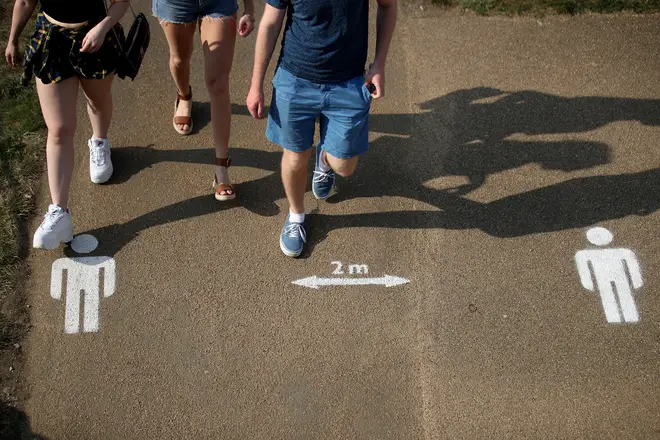On Air Now
Early Breakfast with Lindsey Russell 4am - 6:30am
30 July 2020, 16:11

What does a 'second wave' of COVID-19 mean and is the UK at risk?
As lockdown measures are easing across the UK, people are returning to their normal way of life.
However, this week Boris Johnson has warned of signs of a second wave of coronavirus in Europe, leaving many worried about returning to stricter lockdown rules.
This comes after there was a spike in infection rates in Spain, causing the UK to remove it from their air bridge list.
But what is a second wave of coronavirus, and is the UK really at risk?
READ MORE: Two men fined £9,000 for breaking 14-day travel quarantine with trip to the pub
A 'second wave' of coronavirus refers to another spike in infection rates, and therefore cases of COVID-19 and deaths.
For it to be counted as a second wave, this rise in cases has to be a sustained rise over a period of time.

At the moment, no one knows if a 'second wave' of COVID-19 will hit the UK.
However, this week Prime Minister Boris Johnson has warned that there are signs of a second wave in Europe.
This comes after the Government announced people travelling back to the UK from Spain would have to quarantine for 14 days.
The UK are now advising against all non-essential travel to Spain after some areas of the country saw a spike in COVID-19 cases.
This week, Boris Johnson said: "Let's be absolutely clear about what's happening in Europe, amongst some of our European friends, I'm afraid you are starting to see in some places the signs of a second wave of the pandemic."
Lockdown measures have eased across England, Scotland, Northern Ireland and Wales over the past few months, with England making the biggest steps in leaving lockdown.
This slow easing of lockdown measures came after infection rates in the UK started decreasing from April.
However, the Government have previously said that a more severe lockdown could return if there is a worrying rise in infection rates.
READ NOW: First person fined in England for breaking quarantine rules after going abroad